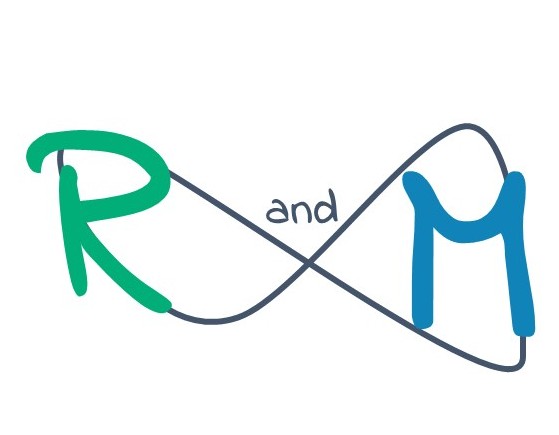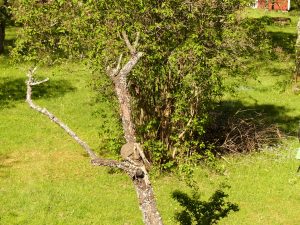Hole vision

Experts have surfaced throughout the world in almost every discipline and walk of life. Look for a definition of ‘expert’ on Google and find that Oxford Languages has the first place with, “a person who is very knowledgeable about or skillful in a particular area” – fine but then see their example, “an expert in healthcare”. Surely not, nobody could claim expertise in such a large and diffuse area. No, we’ve no chance of having any expert in healthcare overall except in the smallest of populations. We have to specialise and sub-specialise to find anyone who could be described as “very knowledgeable” even in a tiny fraction of the topic ‘healthcare’. To do this inevitably leads to limited focus – tunnel vision or perhaps hole vision, anyway, too narrow – leaving us with how can we consider a bigger picture? But do we need to?
Marie’s father Herman, a water turbine engineer, devoted his working life to the development of the heart of any turbine, the runner blades. He was proud of his invention of a scalable design, making it possible to optimise the runner for the particular conditions in which it was going to be running. In his later years, he spent considerable time and interest in working with a new generation of engineers; often muttering that they did not understand anything, on rare occasions saying a word of praise ‘seems like I’ve taught them something at least’.
Not long before a planned power station in which a turbine built on his design principles would be completed, he expressed frustration and concern. ‘What’s wrong?’ asked the engineer in charge of that project. ‘We have made the runner blades exactly to the agreed specification’.
‘It’s not the runner that is the problem’ said Herman, ‘it is the concrete foundation where the machine is going to be installed that’s too weak for a turbine of this power – it just won’t work’.
In complex machinery, each individual part, no matter how well designed and produced it is, only has a real value and function when it works in harmony with the other parts, in its surroundings, in its context. The same applies to humans, and indeed the whole world. Everything is connected, in often in complex ways, and to understand the bigger picture it takes a broad gaze, shrewd observations, and a broad mind to be able to consider not only the detail, but the bigger picture.
The example goes some way in answering the question, ‘Do we need to consider the bigger picture more?’ Marie and I both agree that there is always a need for a generalist to evaluate how specialists and their specialisms are suited to the context in which they play a part: this applies to the material and technical aspects as much as it does to the psychological and philosophical. The question then arises concerning who might have enough knowledge of each field to be able to be able to evaluate all the interactive errors that might arise in such an overview?
Managers are supposed to fulfil these tasks as well as only being in charge of the process, but many simply do not have the patience or knowledge to evaluate the developments they are managing fully. One way of doing that is by frequent, short meetings of experts to report on progress ‘scrums’, using so called ‘agile’ management.
This goes some way to have the most involved people in any project to share problematic issues, but does not necessarily make managers capable of solving them. The problems of technical language and logic that may be fallacious to those without training or experience in such matters remain, as do different views of the context, impact and aims of projects and their importance. Managers often have to decide between the contrary opinions of experts, both within a specific discipline or, more difficult, between protagonists from different disciplines but whose skills are intertwined in some part of a project.
Generations ago Aristotle was aware of the conflicts in views in a world much less complex and specialized than today. Aristotle believed in practical wisdom as the highest intellectual virtue. He coined the term ‘phronesis’ roughly translated as ‘prudence’ or ‘practical wisdom’. Phronesis deals with the complicated interactions between the general (vision/plans) and practice (judgement/achievements).
Aristotle also averred that: ‘…although the young may be experts in geometry and mathematics and similar branches of knowledge [sophoi], we do not consider that a young man can be prudent [phronimos]. The reason is that Prudence [phronesis] includes a knowledge of particular facts, and this is derived from experience, which a young man does not possess; for experience is the fruit of years.’ https://en.wikipedia.org/wiki/Phronesis [10]
Phronesis is concerned with those lived experience particulars as well as taught detailed and largely theoretical, specialized, in-depth knowledge, because it is concerned with how to use the latter whilst acting in various life contexts.
It is my view that the way the world operates is progressively towards the importance of detail, in depth technical learning and specialized knowledge. Even some managers seem to put prime emphasis on aspects of various techniques of how to manage, rather than learning about the people, context and consequences of what they manage.
Certainly, in medicine, the discipline I know best, most managers know very little about the needs of patients and even less about the needs of the clinical staff who take care of those patients. Crises in health care are mainly due to underfunding, understaffing and consequent stress leading to worse practice and more bureaucracy including practice guidelines, standard operating procedures, algorithms (all of which need review to ensure their value and relevance). They impose stricter oversight conditions which inevitable needs more reporting and leads to more misuse of clinical professional time, more stress, burnout and often loss of the most dedicated and able staff.
Now, I’m just a frustrated old man who (like my father in his day) would still like to be of some use: ‘There’s no fool like an old fool!’ ‘Young folk think the young are stupid, old folk know young people are daft!’ he would quote.
My father argued, “Learn from other peoples’ mistakes”, the clever and cocky teenager, that I was, replied, “Be intelligent and avoid them”.
He had long broad deep experiences of life, good and bad. I only had the latest knowledge on selected academic matters.
He said, ‘You can’t put an old head on young shoulders.’ Maybe we should try harder to do that but continue critically valuing new ideas otherwise progress will cease. We must use young heads on old shoulders as well!
But how about giving love and wisdom a chance to drive the world and not just metrics, new technology and economics: to hear more in the media about the former as part of world affairs than the latter would surely make the Earth a better place.
Let’s open our eyes wide, think about it, and change the world.




One Reply to “Hole vision”
Brilliant article! Written cohesively and philosophically sound. Best article I’ve read in a long time, should be published wider. However, only scanning through quickly: 2 typos and one punctuation error!